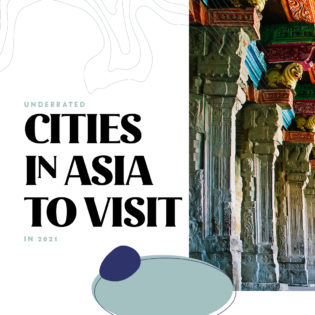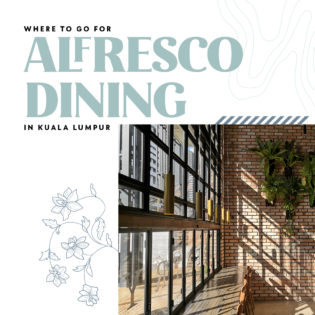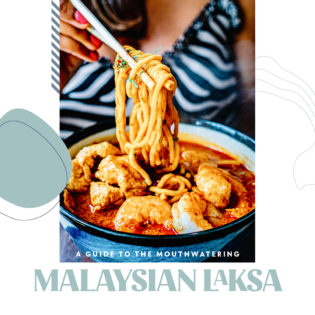Two Malaysian activists doing their part to positively impact society hope to inspire others
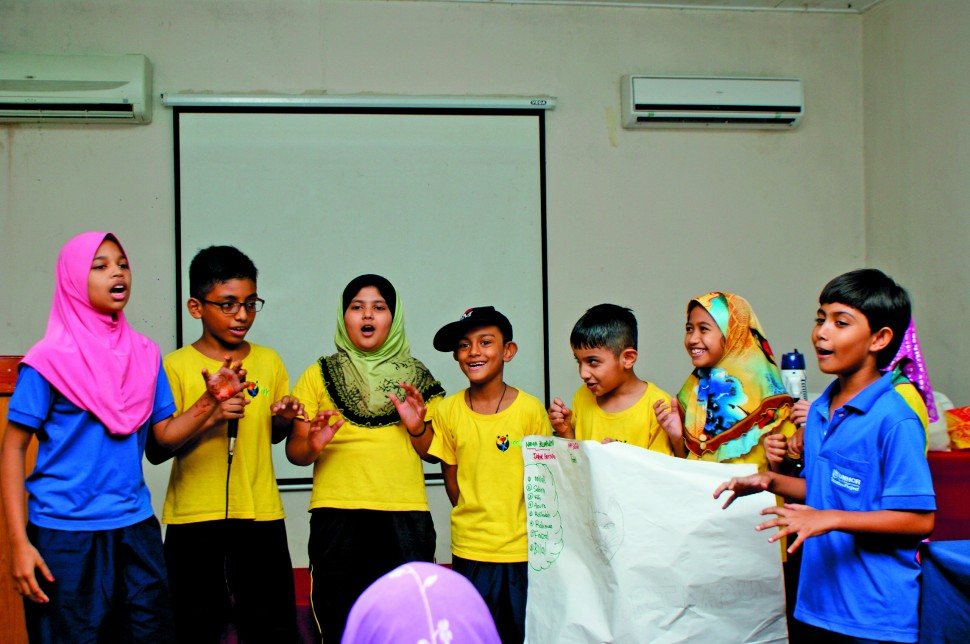
Syed Azmi Alhabshi, Social Activist
Pharmacist-turned-social-activist Syed Azmi Alhabshi is perhaps best known for his community work with groups such as the homeless, the elderly and underprivileged children. He is also Head of Volunteer and Community Engagement at NGOHub, a platform for volunteers and NGOs to share resources.
Syed wasn’t always a do-gooder, though. It all started years ago with a personal project, which was to get to know his neighbours. “At that time, I was working in another state and I was worried about my parents. I decided to get to know my neighbours better, because they were most likely to come to my parents’ aid if something happened,” he explains.
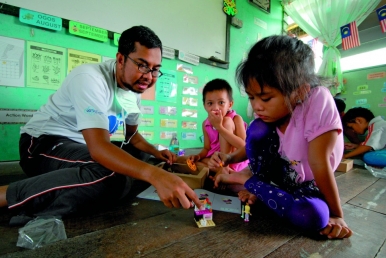
Not put off by doors being slammed in his face and getting yelled at, Syed persevered and his neighbours eventually warmed up to him. He even earned the moniker ‘pineapple boy’, after he gave away 30 pieces of the fruit which he bought on a trip to Muar, Johor. The experience made him realise there was more he could do for the community.
To-date, Syed has initiated 48 projects. There’s Suspended Meal, where people can pay for food at a restaurant to be collected by people who aren’t able to buy a meal for themselves, and Free Market, a place where the public can give or take available items for free.
A typical day for him starts at 6 am, and doesn’t end until past midnight. Mornings are reserved for family. Then he’s off to attend endless meetings, plan projects, give talks, participate in forums, and more. Nights are for meeting groups of beneficiaries, for example, working with underprivileged mothers in the Chow Kit area of Kuala Lumpur on Thursdays.
Syed also dedicates time to update his Facebook account, where he has over 130,000 followers. “People often say that we should keep a low profile when doing good deeds. For me it’s more about educating others. If we share, others might be inspired to do good as well.”
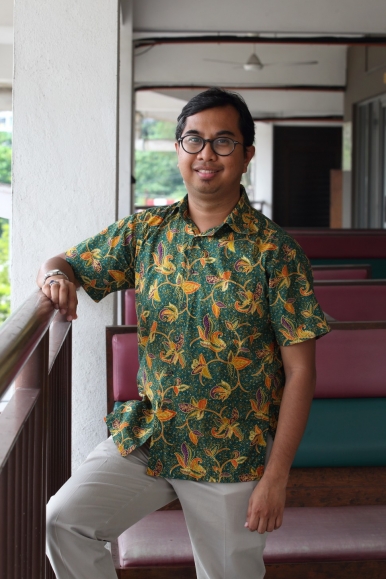
Despite his hectic schedule and having to deal with daunting cases, one wonders how he keeps himself going. Syed answers with a straight face that he washes toilets. “I think negative energy should be put into a positive outcome, so instead of a punching bag, I just clean toilets. I like proper order,” he quips.
As with any job, there are ups and downs – even more so for a social activist.
“There are days when I feel like quitting, but I realise that it’s not about me, and that keeps me sane. It’s my choice to do this,” he reiterates, adding that he’s constantly thinking of ways to create conversation and a positive impact.
Some of the projects he’s worked on this year include programmes with HIV-positive sex workers and the disabled. For Eid, he organised a session calling for volunteers to loan their phones to the homeless and urban poor, so they could call their families. On Mother’s Day, he got foreign factory workers who were mothers to visit a shelter for pregnant teenagers and teach them how to cook.
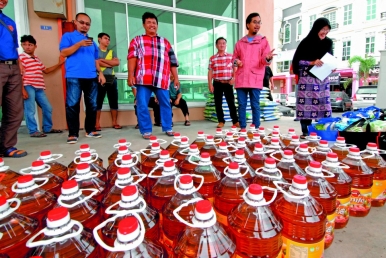
Being in the public limelight, Syed has had his fair share of backlash, including death threats, but he believes that patience and perseverance are required to get through to people. “Most people don’t like change. They don’t like to hear the truth and face reality. Child sexual abuse, for example, is something we rarely talk about because it’s considered taboo, but it’s the only way we can come up with a solution and make Malaysia a better place,” he says.
On future plans, Syed says he’d like to pass the torch on to the next generation. “I train a few people, and they go on to make their own amazing projects. That makes me so happy.” He keeps his ego in check with the nickname he signs off with on Facebook, Small Lamb, which was given by someone he knew who died from cancer.
“Every time I use it, I feel small and naïve. It’s a reminder that I have to know my place. When I die, I don’t want people to remember me – I want them to do good,” he concludes.
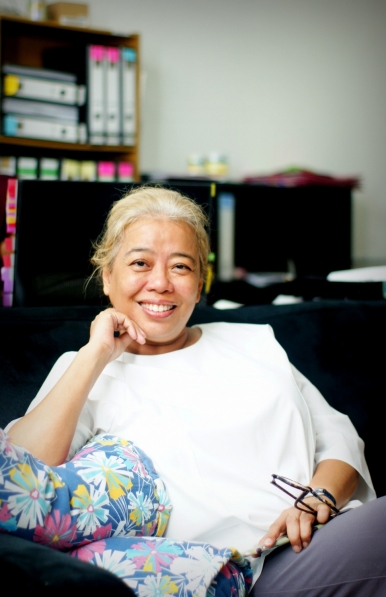
Dr Hartini Zainudin, Child Activist
Dr Hartini Zainudin may come across as soft-spoken, but underneath the kindly exterior is a quiet air of steeliness.
“I’ve always known, even from a young age, that I wanted to work with children,” says the child activist, who is co-founder of Yayasan Chow Kit (YCK), a 24-hour crisis centre providing underprivileged and at-risk children with basic needs such as food, shelter and education, as well as counselling and protection services.
Coming from a big family, Hartini had a great childhood, so it was doubly hard for her to see children who are abused or unhappy. She started volunteering while pursuing her studies at Teacher’s College in Columbia University, New York, where she helped out at soup kitchens, the library and shelters.
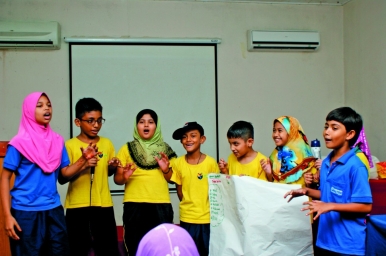
“It was hard to teach kids when they were hungry. In bad neighbourhoods, they were always worrying about the next gang fight or their safety on the streets. It made me realise how important it was to offer a respite, a safe space where these children could eat, sleep or play with friends,” she says.
After returning to Malaysia, she volunteered with local non-profit organisation Yayasan Salam Malaysia and was posted to Chow Kit, a place which was, at that time, notorious for its vice dens and an urban poor community.
Hartini remembers arriving on her first day to a 55-square-metre day care centre packed with 40 children. With limited resources, it was difficult for the children to thrive. Working with the couple who ran the place, they moved to a bigger place with backing from Yayasan Salam and government welfare agencies.
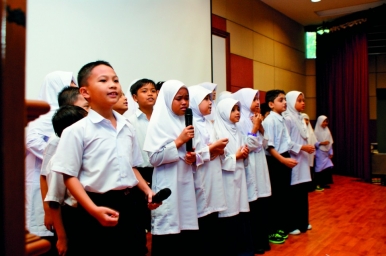
The rest, as they say, is history.
At their peak, YCK had 220 children coming in to the centre. Things are calmer in Chow Kit these days as there are more NGOs serving the area. It’s a far cry from the days when Hartini says she’d be on the ground rescuing children or shimmying down drains or jumping out of brothels.
Today, Hartini is less involved in day-to-day operations, but remains on-hand to advise and help out at the centre if needed. She also juggles a day job as a consultant, does outreach and court cases as well as advocacy, which she believes is the best way to protect children.
“We have to look at influencing policies and filling gaps in the system. There may not be as many hungry children on the streets, but cases like child abuse or neglect have not gone down,” she points out.
One of the biggest challenges, according to Hartini, is discrimination. “We have policies that do not protect or consider all children in Malaysia, such as stateless children, denying them of basic needs,” she expounds. The issue is close to her heart as two of her three adopted children are stateless.
“It’s really important to convince policy makers that they need to look at the problem long term. We need to do better by our children. We are all in it collectively and we need to think about it from a bigger perspective,” she says.
When the going gets tough, Hartini reminds herself of the positives. She shares the story of Natalia (not her real name), a rescued baby whose mother was a drug addict living on the streets. Natalia suffered from withdrawal symptoms, and for the first 24 hours, had to be rocked gently and fed droplets of solution to ease the pain. Recalling the experience as “the worst 24 hours of my life” Hartini eventually found a childless couple who adopted the baby.
“The father was a rubber tapper and the wife was a homemaker. They didn’t have much but you could tell from the way they stroked her hair and looked at her that they were going to love this baby,” she says. A decade on, Hartini looks forward to her annual phone call from Natalia. “The first few years, her mother would put her on the phone and I’d hear her gurgling on the other end. Now that she’s grown up, she always greets me with a cheerful ‘Hello!’ and ask me about my day. It’s heartening to know that some good came out of something so horrible and painful,” she says with a fond smile.
yck.org.my


